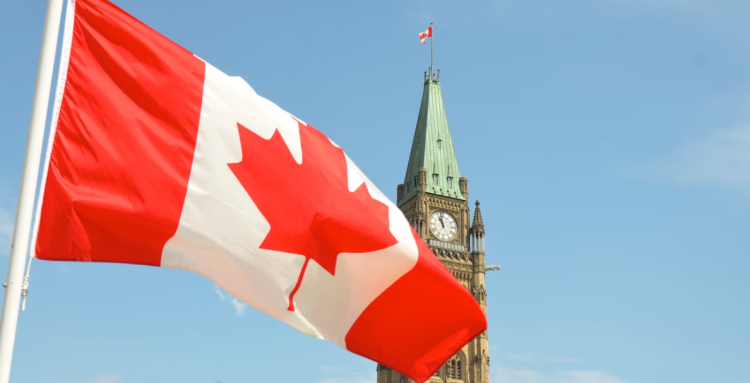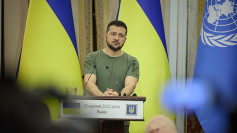Canada and India, both members of the Commonwealth and targets of U.S. diplomacy, have experienced their most severe diplomatic dispute in recent years. The two nations have expelled senior diplomats, halted trade negotiations, and canceled a trade delegation visit scheduled for October.
The spark for this dispute was an emergency address to the Canadian Parliament by Prime Minister Justin Trudeau. Trudeau mentioned that Canadian security agencies are investigating "credible allegations" that the assassination of Canadian citizen and Sikh leader Hardeep Singh Nijjar may be linked to Indian government operatives. Nijjar was gunned down in Canada this past June.
Trudeau emphasized that the killing of a Canadian citizen on Canadian soil by a foreign government is a violation of Canada's sovereignty and is "unacceptable." Canada is home to 770,000 Sikhs, making it the largest Sikh diaspora outside of India's Punjab state.
Jagmeet Singh, leader of Canada's opposition New Democratic Party, is a Sikh. Last year, the New Democratic Party reached a cooperation agreement with Trudeau's Liberal Party, supporting the Liberals in power until 2025. Trudeau leads a minority government since the Liberals don't hold a majority in the House of Commons.
India has vehemently denied Trudeau's claims, condemning Canada for providing refuge to separatist extremists and terrorists. Radical Sikhs once initiated the "Khalistan" movement, advocating for an independent state in northern India.
Indian media also accused Canada of trying to rally the "Five Eyes" alliance against India. The "Five Eyes" is an intelligence-sharing alliance comprising the U.S., UK, Canada, Australia, and New Zealand. The U.S., UK, and Australia have already spoken out about the India-Canada dispute.
Canada's Accusations
In an interview on September 19, Trudeau stated that his Monday address was not intended to provoke India or escalate tensions. "We are simply presenting the truth as we understand it and hope to resolve it with the Indian government," he said.
Trudeau also stressed that the assassination of Nijjar will have profound implications under international law and urged the Indian government to handle the matter with "utmost seriousness."
However, Trudeau has yet to present any evidence, with Canadian officials saying they will share evidence with the world "when appropriate." Canadian officials also revealed that they have been closely collaborating with the U.S. on the investigation.
Nijjar, 45, was shot outside a Sikh temple in Surrey, British Columbia, on June 18. He was in charge of the temple, and Surrey is Canada's largest Sikh community.
Last month, the British Columbia Homicide Investigation Team identified three suspects in the case, but no arrests have been made.
Trudeau revealed that he discussed the case with Indian Prime Minister Modi during the G20 summit, strongly urging the Indian government to cooperate in the investigation.
In response, the Indian government's statement mentioned that Modi expressed serious concerns about anti-India marches by Sikhs in Canada during his talks with Trudeau, accusing the marches of inciting violence against Indian diplomats and threatening the safety of local Indians.
Western media even used the headline "Modi scolds Trudeau" to describe their meeting. Due to their disagreement, Trudeau skipped the G20 leaders' dinner. Before returning to Canada from India, Trudeau was forced to stay two extra days in New Delhi due to a plane malfunction. India offered another plane, but Trudeau declined.
Following Trudeau's emergency address, Canada immediately announced the expulsion of an Indian senior diplomat responsible for intelligence. The next day, India reciprocated by expelling a Canadian senior diplomat with similar responsibilities.
Trade negotiations between India and Canada, which were ongoing and expected to conclude this year, have now been suspended. Canada's Trade Minister Mary Ng has also postponed her scheduled visit to India in October.
Trade between Canada and India is not extensive. In 2022, bilateral trade between the two countries amounted to only $10.2 billion.
India's Grievances
Nijjar, the assassination victim, was born in the northern Indian state of Punjab, the birthplace of Sikhism. He moved to Canada in 1997. India's National Investigation Agency believes Nijjar was associated with the Babbar Khalsa International (BKI), a Sikh separatist organization designated as a terrorist group by India.
In 2020, Indian authorities labeled Nijjar a "terrorist," accusing him of being the leader of another separatist group, the "Khalistan Tigers," responsible for its operations, member training, and fundraising. Nijjar was also accused of being involved in several murders in Punjab and funding local separatists. Last July, the Indian government issued a reward for information on Nijjar, offering 1 million rupees (approximately $11,800).
Punjab has a majority Sikh population, but Sikhs are a minority in India, making up only 2% of the population. Sikh separatists seek to establish their own country, "Khalistan," in Punjab and have clashed with the central Indian government multiple times.
In 1984, Sikh separatist militants occupied the Golden Temple, a sacred Sikh site in Punjab. Then-Indian Prime Minister Indira Gandhi ordered a military assault on the temple, resulting in at least 544 deaths. This escalated tensions between Sikhs and the central government.
In October of that year, two Sikh bodyguards, upset over the Golden Temple operation, assassinated Gandhi. This led to a crackdown on Sikh separatist groups in Punjab and other areas.
Today, Sikh separatist groups continue to operate in countries like Canada, the UK, and the U.S. In March, Sikh separatists stormed the Indian High Commission in London, tearing down the Indian flag. That same month, protesters entered the Indian Consulate in San Francisco, raising the "Khalistan" flag.
India has long been displeased with countries like Canada for allowing separatists to hold anti-India marches. On Tuesday, India's Foreign Ministry issued a lengthy statement accusing Canada of sheltering "Khalistan movement terrorists and extremists," whose actions threaten India's sovereignty and territorial integrity.
The statement specifically pointed out India's "serious concerns" about Canada's long-standing inaction and Canadian politicians' public sympathy for separatists.
The "Five Eyes" Alliance
Indian media reported that Trudeau tried to get the "Five Eyes" to issue a joint statement on Nijjar's assassination during the G20 summit. If true, this would mean Trudeau sees India as an "adversary" and wants other Western countries to gang up on India.
So far, the U.S., UK, and Australia from the "Five Eyes" have commented on the India-Canada dispute, with all three displaying caution.
A UK government spokesperson said they are in close communication with Canadian partners regarding the "serious allegations" against India. Since the Canadian authorities are still investigating, the UK cannot comment. An Australian Foreign Ministry spokesperson expressed similar sentiments, expressing "serious concerns" about the allegations and conveying these concerns to senior Indian officials.
Adrienne Watson, spokesperson for the U.S. National Security Council, expressed the U.S.'s "serious concerns" about the allegations raised by Canada and said they are in close communication with Canada. Watson emphasized the importance of ensuring Canada can advance its investigation and bring the perpetrators to justice.
A senior U.S. State Department official said the U.S. has urged India to cooperate with Canada's investigation. Western officials revealed that before Trudeau's emergency address, Canada had called on the U.S. to publicly condemn the assassination of Nijjar, but the U.S. declined.
Derek Grossman, a national security and Indo-Pacific region analyst at the RAND Corporation, wrote on a platform that the "explosive news" between India and Canada puts the Biden administration in a "no-win situation."
If the U.S. supports Canada, India would be upset and question the U.S.'s loyalty in courting India. If the U.S. supports India, it means the U.S. is opposing a NATO ally. Grossman summarized the U.S.'s predicament with a single word: "cough."







